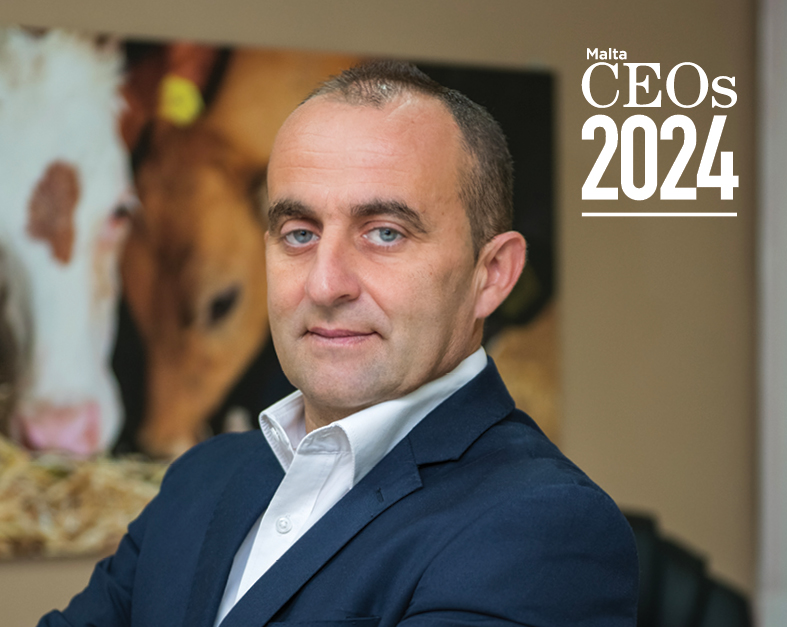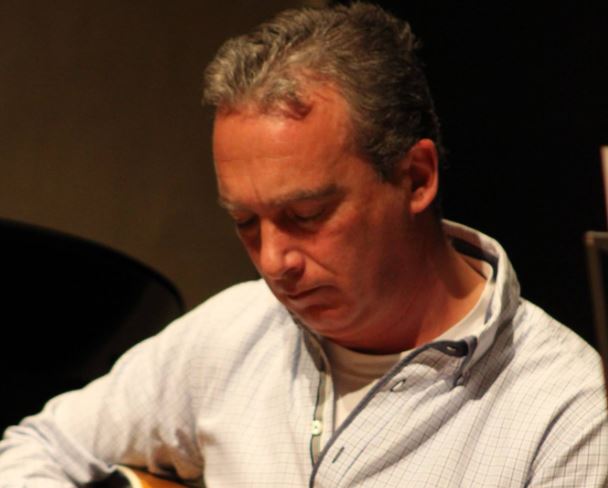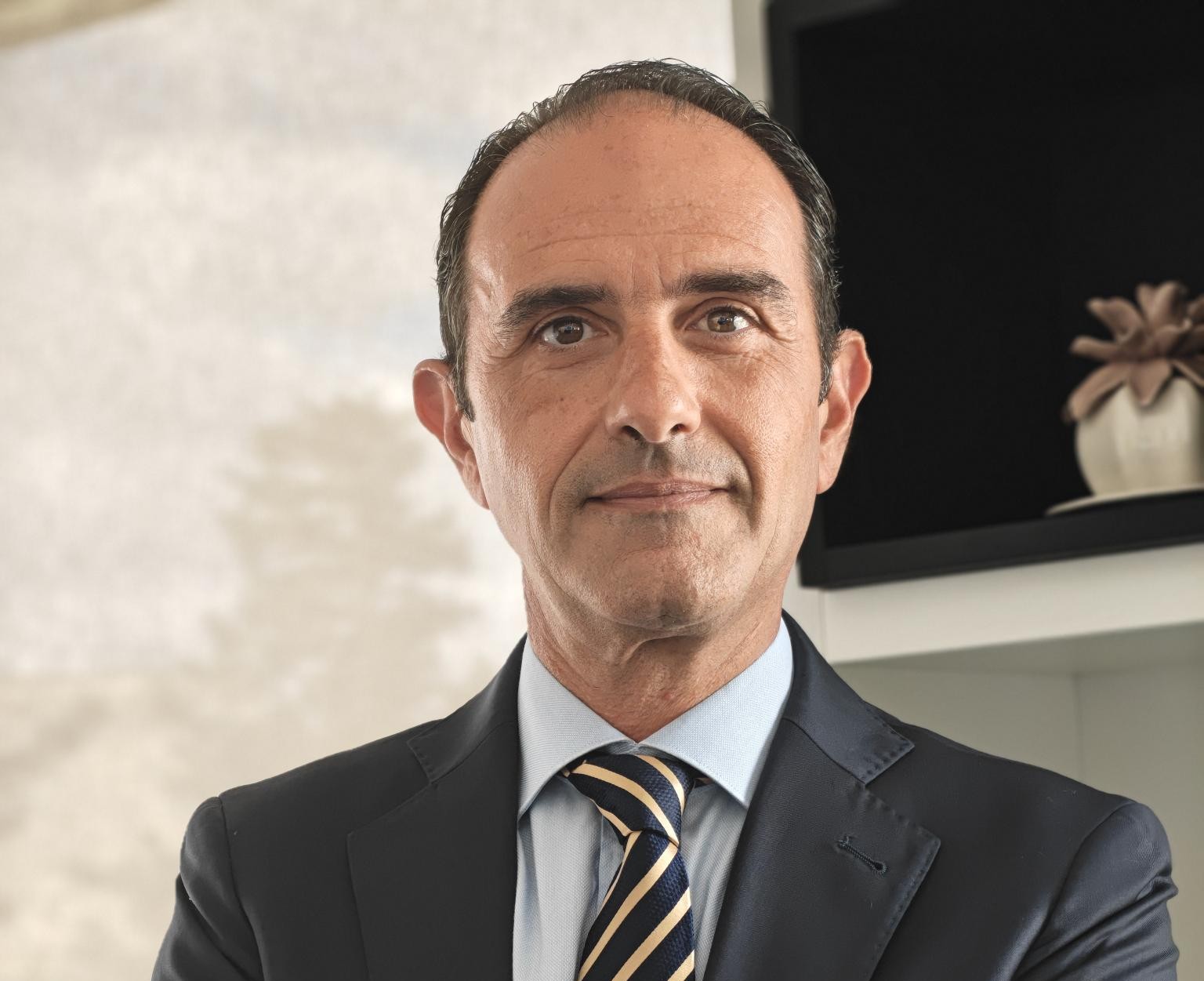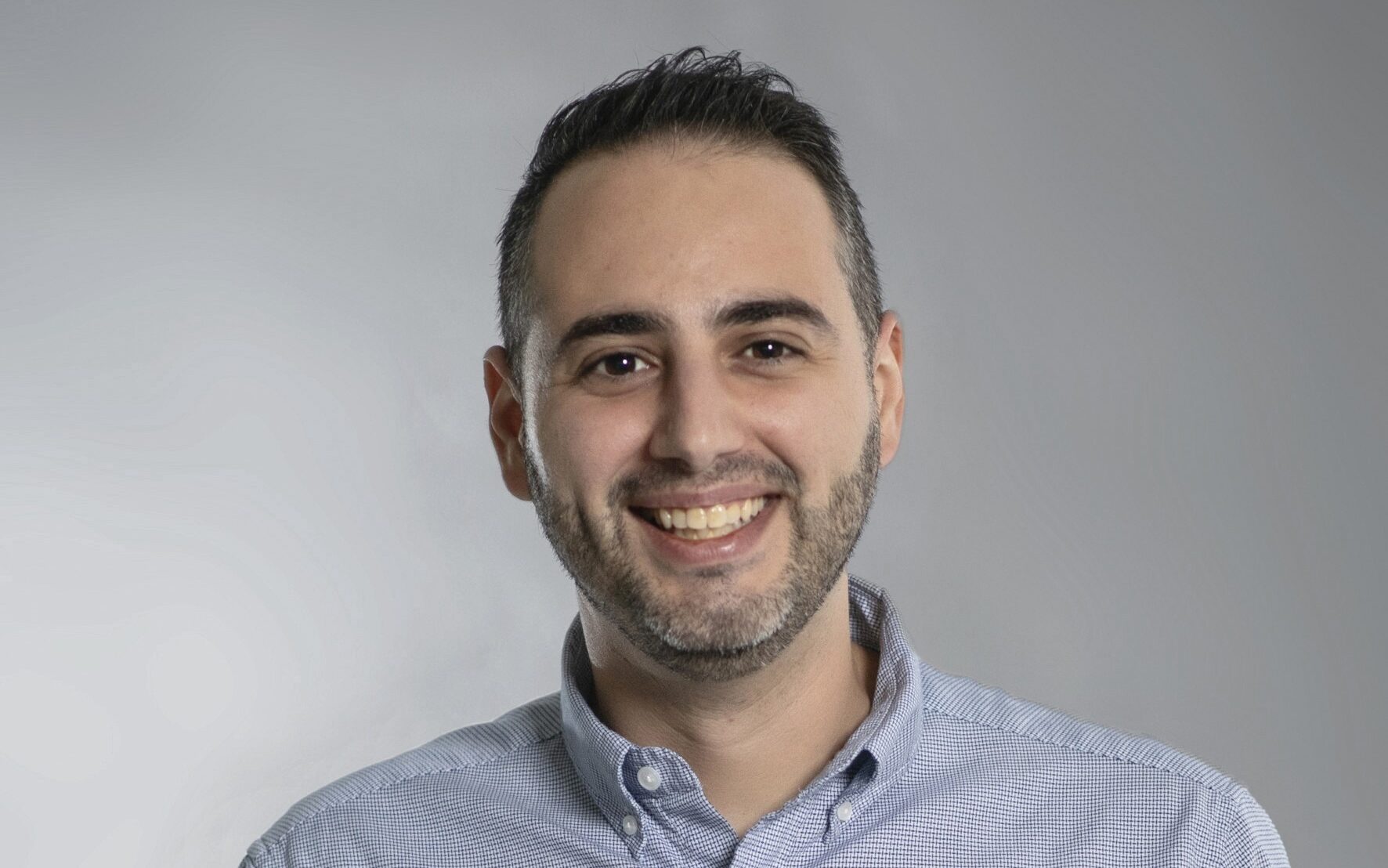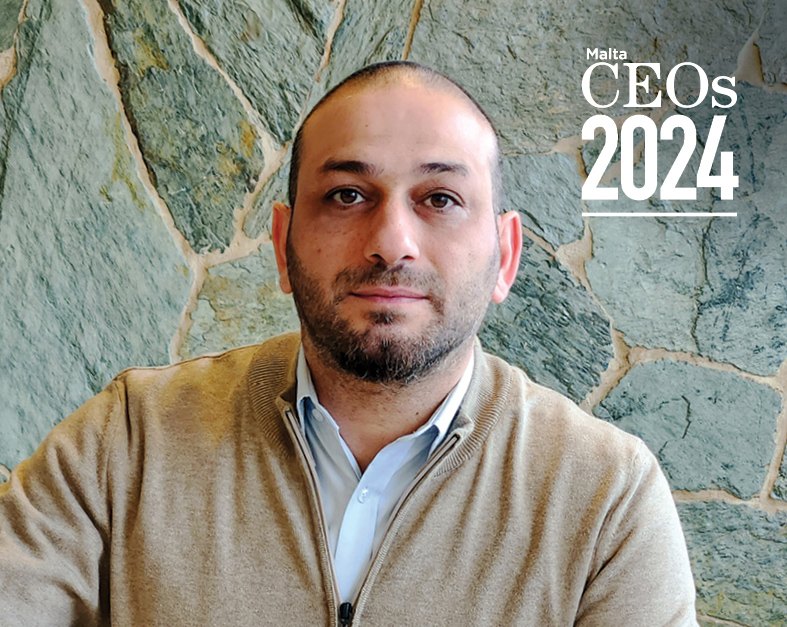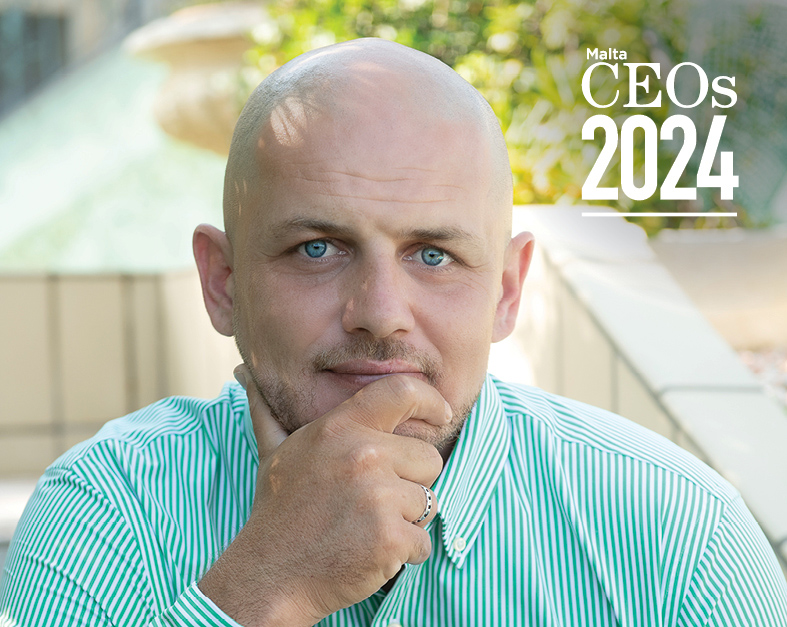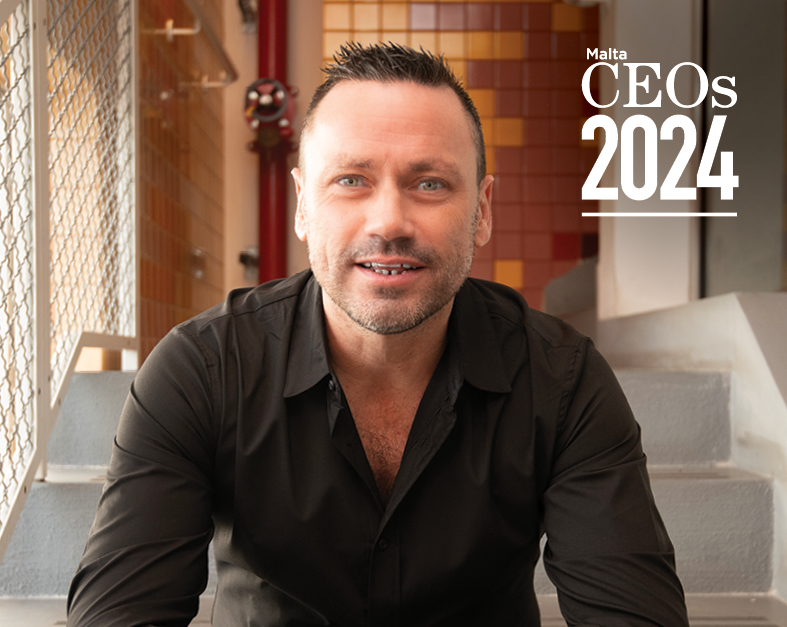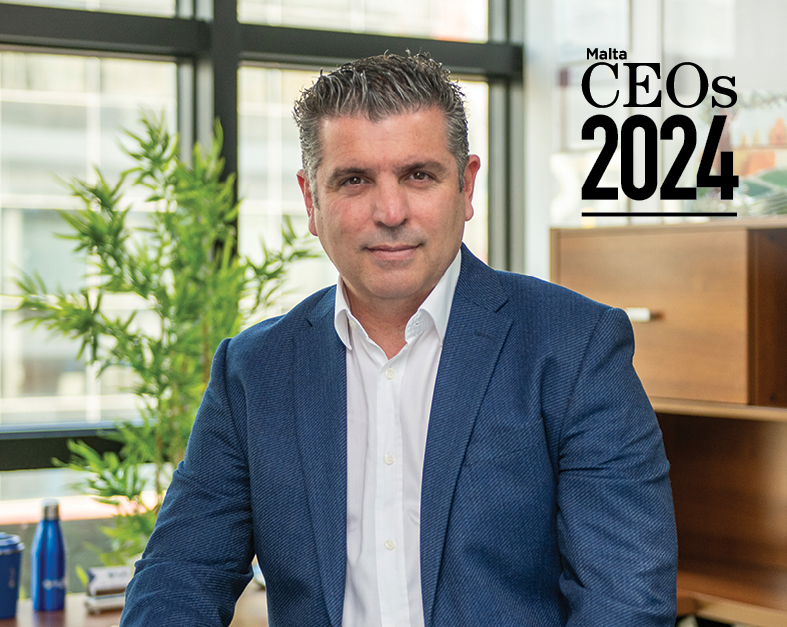From humble beginnings on his family’s farm to working with Koperattivi Malta and serving as a board member and group president of the Milk Producers Cooperative at KPH Group, Brian Vella has long been part of Malta’s food and agricultural scene. Since joining the Malta Food Agency in 2021, Brian has set himself the objective to proactively expand and enhance local food markets.
In Brian Vella’s own words, “going from being a farmer to becoming a CEO has been quite a journey” – one that, in hindsight, has been a seamless transition. “My previous role at KPH helped me foster thorough knowledge of Malta’s agricultural scene, and I gained invaluable experience collaborating with and understanding farmers – our main stakeholders at the Malta Food Agency,” he explains.
Before being appointed CEO of the Malta Food Agency (MFA) in 2021, however, Brian sought to support his robust industry knowledge and handson experience with formal business training via a Master of Business Administration (MBA) in 2016. In the interim, he was involved in various business projects outside of agriculture after leaving the family farm but eventually returned to the sector, this time with a greater understanding of business management and an MBA under his belt.

“In the end, my devotion to the sector led to my direct involvement in the management of cooperatives,” he explains – a move that allowed him to marry his passions for both business and agriculture, and which became one of the greatest milestones of his 30-year career.
Describing his top-level view of the MFA as CEO, Brian compares his role to that of a symphony conductor. “Both require a unique blend of vision and leadership, as well as the ability to bring together diverse talents to create something remarkable. To me, directing the MFA truly feels like conducting an orchestra,” he describes.
“My job is not just about being a Chief Executive Officer, but also about acting as a Chief Empathy Officer,” he smiles, reflecting on his work ethos and what it means to be CEO. For Brian, investing in staff is a priority that aligns with leading an organisation that employees are as passionate about as he is. “As a leader, my staff’s emotional needs take centre stage because I could never run the agency alone. The greater my connection with my team, the better positioned we are to follow through with our vision for the MFA. Moreover, I cannot discount how lucky I am to have such a strong team of chief officers who are instrumental in driving our vision forward.”

As a governmental entity set up in 2021, the MFA was established to address market failures in the operations of Malta’s farming (Pitkalija) and fisheries (Pixkerija), filling a niche that would primarily add value to local produce. What this means is that at its inception, the MFA inherited a crisis within the Pitkalija markets, which were operating under a 50-year-old, outdated system.
“At the time, our efforts had to be directed towards ensuring business continuity and implementing longawaited reforms,” Brian explains. “Two years later, we are now reaping the fruit of that change and have established a fully-fledged agency with a business development unit, projects and operations unit, and surveillance unit in place.”
To address persisting market failures, the MFA aims at making these markets viable again. “Our strategy centres on adding value to local produce, ensuring sustainability, promoting local produce markets, and capturing new ones. Another one of our priorities is to ensure local farmers and fishermen receive fair compensation, which necessitates full transparency,” he adds.

In fact, in the summer of 2023, the MFA successfully consolidated its structure, which is based on three main pillars: markets, business development and digitisation – each vital to the implementation of the agency’s vision to channel top-quality and valuable local food products to different markets. “The MFA’s basic function is now in place, and we are poised to execute our strategy, which will shape our trajectory as we advance. Now that the foundation has been set, we are ready to act and implement,” asserts Brian.
Getting to this point, however, has not been without its challenges, as Brian opens up about the demands of leading a governmental organisation – from sticking to timeframes and bringing all stakeholders on board to dealing with and trying to mitigate bureaucracy. Nevertheless, for Brian, the positives still outweigh these challenges.
Indeed, one of his greatest motivators is change. “I love change because it presents an opportunity for improvement, and it gives me great satisfaction to work on something that can improve people’s lives. I am proud of our success in overhauling a five-decadeold system and convincing stakeholders to participate in the change that finally brought about the muchneeded Pitkalija reform,” he beams.
This article is part of the serialisation of 50 interviews featured in MaltaCEOs 2024 – the sister brand to MaltaCEOs.mt and an annual high-end publication bringing together some of the country’s most influential business leaders
‘We have become known for our reliability, expertise & environmental responsibility’ – Director Mattheus Buyukkaya
Mattheus began his career in renewable energy as a junior, and progressed until he decided to launch his own renewable ...
‘My goal is to contribute to a greener future for generations to come’ – CEO Namik Kemal Ozden
Namik believes that you must always know who you are doing business with, whether that means visiting your suppliers, meeting ...
‘Loyalty is important, not just as a measure of client loyalty, but as a tangible form of positive feedback’ – CEO Luke Todd
As a business leader, Luke favours smaller teams, allowing greater control of culture and unique selling propositions.
‘Clients come to us because they expect us to be experts in every aspect of compliance’ – Director Trevor Axiak
The Founder and Director of Kyte Global shares that with compliance demands on the rise, there is also greater demand ...


